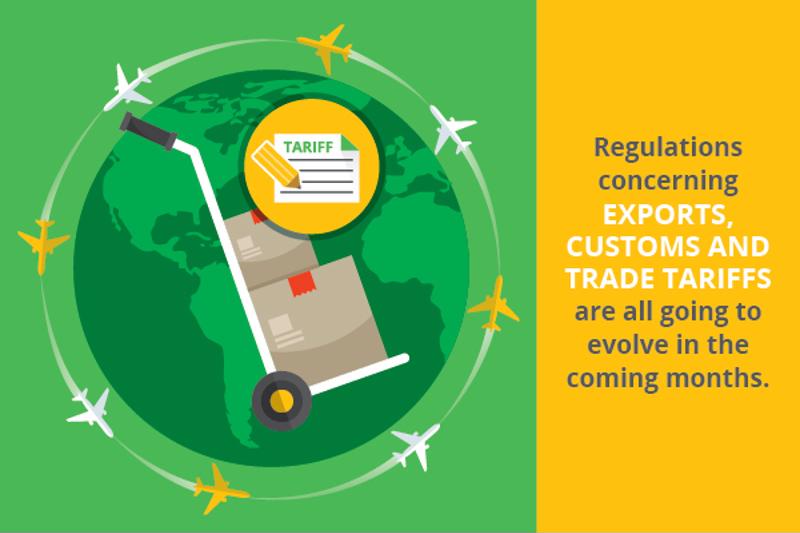In June, when the citizens of the U.K. voted to leave the European Union in an unprecedented move now referred to as “Brexit” (a portmanteau of “Britain” and “exit”), the implications were far from certain. Economic professionals far and wide have debated about the impact this decision would have on the global marketplace, and supply chain professionals have been especially watchful.
Logistics questions
The departure of the U.K. from the E.U. is going to have an impact on the digital and global economy – that much is clear. According to Gartner, the trade landscape between the U.K. and the E.U. has a total annual value of $575 billion. The Wall Street Journal contributors Paul Page, Robbie Whelan and Laura Stevens wrote immediately following the decision that the Brexit vote would have a two-pronged effect: It could potentially cut the movement of goods, but it could also fuel greater demand for services to help companies figure out evolving regulations.
The Inspirage team has a slightly different outlook. If Britain is able to get into favorable trade agreements, trade will continue uninterrupted. Unfavorable trade agreements and/or customs duties levied on EU products could potentially drive up the prices of commodities including essentials. It is likely that in this case the demand for non-essential commodities may fall, but movement of goods is unlikely to be restricted or cut.
One of the key requirements for transportation is to keep “the wheel moving.” The more trucks have to stop, the less efficient the process. Brexit will have a direct impact on this aspect of transportation. Border controls will most likely cause delays and increased transit times. Another area that could potentially be impacted is the availability of drivers. Britain may now have to rely on British drivers. The demand for drivers will increase, but the drop in supply will increase the cost of labor.
Corporations may look at rejigging their supply chain network in the wake of Brexit. Companies who rely on warehouses in Europe to ship to Britain may look at setting up new warehouses in Britain. Similarly companies who may rely on warehouses in Britain to ship to Europe may look at setting up new warehouses in Europe so forth.
 Brexit will have untold impacts on global regulations.
Brexit will have untold impacts on global regulations.
In any case, despite the concern, nothing is certain yet, and logistics managers have no reason to panic. It’s simply important to take Brexit into account when planning and executing global supply chain operations.
“There clearly is going to be a period of transition here where everyone is trying to figure out exactly how Brexit will take place,” said Andrew Clarke, CFO at Minneapolis-based logistics company C.H. Robinson. “But it’s not like the U.K. will stop trading with the E.U. and the U.S. or anyone else.”
What should be done?
Supply Chain Digital contributor Jim Lodwick wrote in early September that although it was still too early to realize the full effects that Brexit will have on the European and global supply chains, there are some potential outcomes that are important for operations managers to consider now. Regulations concerning exports, customs and trade tariffs are all going to evolve in the coming months.
In order to keep up with these changing regulations, Lodwick stated, companies will need to invest in technology solutions that allow interactive management of supply chain processes. Real-time information helps to optimize operational effectiveness and provides key visibility into each part of the supply chain – an important ingredient for any post-Brexit strategy.
“[T]his could provide an opportunity to redesign dated logistics processes allowing organizations to take advantage of developments in technology and drive optimum performance from new systems,” Lodwick wrote.
In today’s volatile economic climate in the wake of Brexit, supply chain managers need to ensure that they are using the right tools that will allow them to have total and complete visibility over their operations in order to maintain a competitive advantage. To that end, cloud-based supply chain logistics modules like Oracle Transportation Management and Warehouse Management Systems offer managers a way to glean key insights from their supply chain data and aid in the decision-making process.
For more information about how Inspirage can help pair your organization with the right supply chain solution, contact us today.
